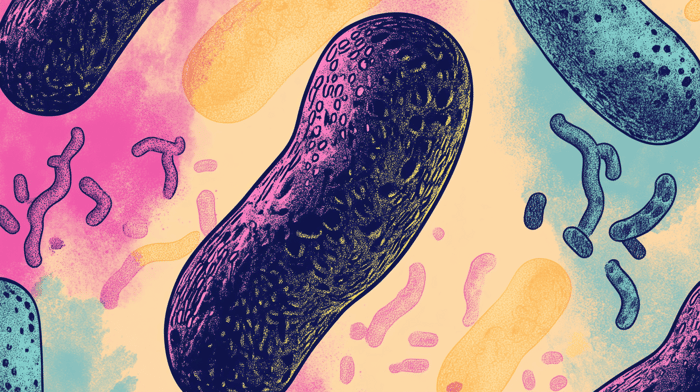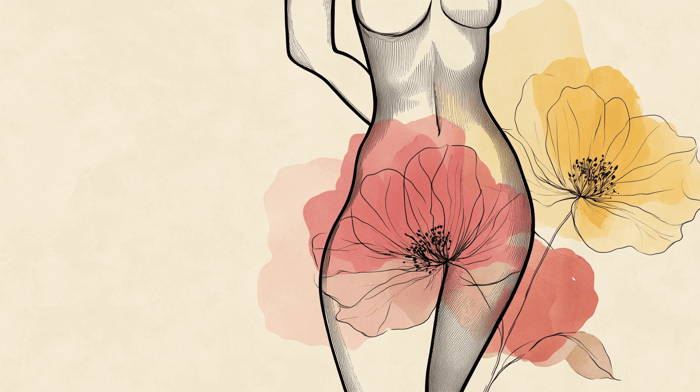Probiotics are a special kind of supplement. Unlike traditional supplements, they contain LIVE bacteria, which can be both good and bad news. The good news? These bacteria can help you improve your vaginal and gut health—if they reach those areas. The bad news? These live bacteria may not always make it to your vagina or gut because your stomach acid and what you eat can kill them before they get there.
So, if you're investing in probiotics, you'll want to make sure you're getting the full benefit. In today’s article, we’ll share how some women unknowingly sabotage their probiotics and vaginal health. But don’t worry, the solution is simple—and we'll also give you quick tips to supercharge every dose.
The Big Enemy: Antibiotics💊
Before we dive into lesser-known culprits, let's talk about the big enemy—antibiotics. Antibiotics are designed to kill both good and bad bacteria in your body, including the live bacteria in your probiotics. Most probiotics have tough enteric shells that protect the bacteria from stomach acid, but antibiotics can still attack the live bacteria inside the shell.
So, does that mean you should choose between probiotics and life-saving medication? No! Here’s how to avoid this problem:
Strategy:
Doctors recommend waiting a few hours after taking antibiotics to take your probiotics. This way, the antibiotics will have been absorbed and carried away from your stomach, allowing the probiotics to do their job.
Even Better:
Researchers from the College of Medicine at the University of Science, Arts, and Technology suggest taking probiotics 2-6 hours after your antibiotic dose for the best results.
Result:
By timing it right, antibiotics won’t kill the beneficial bacteria in your probiotics, and your microbiome will start rebuilding itself.
Bonus Tip: Practice Antibiotic Stewardship!
If your doctor prescribes a broad-spectrum antibiotic (known for causing yeast infections), ask if a narrow-spectrum antibiotic might be an option. Narrow-spectrum antibiotics are less likely to disrupt your vaginal health.
Other Foods That Undermine Your Probiotics and How to Counteract Them
- Alcohol: Alcohol can disrupt the balance of bacteria, creating an environment where harmful bacteria thrive. It also dehydrates you, which is bad for your vaginal health.
Strategy: Moderation is key. Enjoy your favorite drinks, but take your probiotics a few hours apart from alcohol and stay hydrated. - Sugary Foods & Drinks: High sugar levels feed harmful bacteria and yeast, which undermines your probiotics.
Strategy: Gradually reduce added sugars in your diet. Opt for whole fruits instead of sugary snacks, and replace sugary drinks with water infused with fruits like lemon or cucumber. - Processed Foods & Artificial Sweeteners: These disrupt your microbiome, including your vaginal flora.
Strategy: Choose fresh, homemade meals whenever possible. When cooking, try healthier methods like grilling, roasting, or steaming instead of deep frying.
Since probiotics pass through your digestive system, it’s important to minimize their interaction with foods and drinks that reduce their potency. If you're on a special diet or have health conditions, talk to your doctor for personalized advice.
How to Supercharge Each Probiotic Dose You Take
Most probiotic strains like Lactobacillus and Bifidobacterium are naturally sourced from dairy products. Adding more dairy to your diet can boost the effectiveness of your probiotics.
However, if you’re lactose intolerant or sensitive to dairy, non-dairy beverages or water are great alternatives.
Here Are Other Options to Consider:
- Non-dairy Milk Alternatives: Almond milk, soy milk, and oat milk are generally safe to consume with probiotics, especially unsweetened varieties.
- Yogurt or Kefir: These fermented dairy products are natural sources of probiotics and can enhance the benefits of your supplement.
- Fruit Juices: Apple, orange, or cranberry juice can be consumed with probiotics, but choose unsweetened options to avoid feeding harmful bacteria.
- Water: Plain water is always a safe choice, but avoid chlorinated water. Use filtered or bottled water instead, and ensure it's cool or at room temperature—heat kills probiotics.
Warning!! ⚠
Avoid taking probiotics with hot drinks like tea or coffee—heat kills the live bacteria in probiotics.
Conclusion
Understanding how your diet affects probiotics is crucial to making them work for you. Once you create a healthy environment for beneficial bacteria to thrive, your vaginal health will quickly improve.
--
Do you need a science-backed probiotic formula that’s proven to:
- Boost your natural self-cleaning mechanism with more Lactobacillus?
- Maintain your pH at the optimal level?
- Help banish vaginal odor, yeast infections, and BV for good?
Consider trying Divine Vagine probiotic by FlowerPower:











